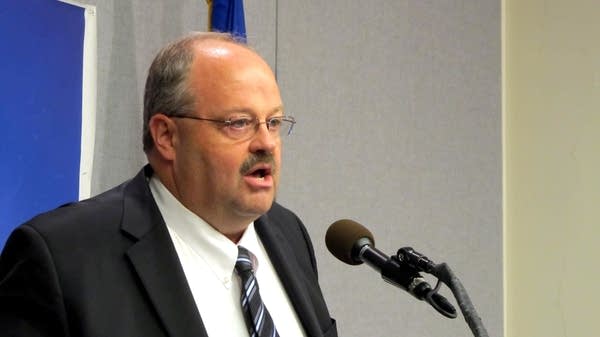Legislators balk at $500M request from Mayo to aid expansion
Go Deeper.
Create an account or log in to save stories.
Like this?
Thanks for liking this story! We have added it to a list of your favorite stories.

When Minnesota lawmakers return to the state Capitol on Tuesday to focus on a two-year budget, they will also weigh whether to approve the Mayo Clinic's request for $500 million to support its $3 billion expansion plan.
Supporters of the project say state financing for roads, bridges, parking garages and other improvements would ensure that the hospital and clinic system cements its future in the Rochester area.
Lawmakers say they want to help the hospital and clinic system grow, but some have concerns about the size of its funding request and the overall financing plan. That has key lawmakers asking for an alternative proposal.
Among those requesting a different approach is state Rep. Ann Lenczewski, DFL-Bloomington. She is concerned that if the Legislature approves the request, the Mayo Clinic and Rochester would receive special treatment that no other community receives.
Turn Up Your Support
MPR News helps you turn down the noise and build shared understanding. Turn up your support for this public resource and keep trusted journalism accessible to all.
"It feels like, at least on this side, that we're at a stall right now," she said. "I want them to know that we're not saying, 'Over our dead bodies.' We're just saying that if the Legislature loves this, we're going to have to figure out a way to pay for it like anything else around here."
The hospital and clinic system plans to pay for its expansion by using a portion of future sales, income and property tax revenue in the Rochester area.

Lenczewski, chairwoman of the House Tax Committee, is skeptical of the Mayo Clinic's promise that expected growth from the new development will generate enough money to pay for the project and maintain its existing tax payments to the state. She wants to see other financing ideas from the Mayo Clinic and its backers.
Lisa Clark, the administrator for the system's Destination Medical Center plan, said a new plan could emerge if lawmakers help devise a better way to pay for the expansion.
"If lawmakers have different ideas that can finance the needed infrastructure over the next 20 years and keep pace with the level of Mayo and other private investment that we're suggesting in our plan, than we're certainly open to working alternatives," she said.
Clark declined to provide specifics about other options. She said the Mayo Clinic isn't threatening to move its headquarters from Rochester but could consider expanding its operations elsewhere if the state fails to make a decision this year.
State Rep. Kim Norton, DFL-Rochester, is in talks with Mayo Clinic officials, Lenczewski and other legislative leaders to come up with other financing options. Norton said possible alternatives include something like the funding plan that created the Iron Range Resources and Rehabilitation Board in northeastern Minnesota and the special tax breaks given to port authorities.
Norton, the House sponsor of the Mayo Clinic bill, still backs the initial plan but is willing to consider other ideas.
"I'm fine with having multiple options," she said. "I was committed to the original funding source but just realized that we have to pass it out of this body, so we have to do what the body wants."

Gov. Mark Dayton and DFL legislative leaders recognize there could be significant political fallout if they don't deliver something for the Mayo Clinic, the largest private employer in the state.
Dayton said he is concerned about the financing plan and the overall size of the state investment. He recently appointed his chief of staff, Tina Smith, to spearhead talks with Mayo Clinic officials, and she said Dayton is committed to getting something done.
"The governor sees this as a huge opportunity," Smith said, adding that it is a "big opportunity to do one of the most significant economic development projects in Minnesota's history, and how do we do it in a way that's good for the taxpayers and for the people of the state. There's a lot at stake."
State Sen. Rod Skoe, chairman of the Senate Tax Committee, said he is largely comfortable with the Mayo Clinic's plan. But Skoe, DFL-Clearbrook, has concerns over the funding of road and bridge construction needed to support the project. Senate Democratic leaders have also suggested the city of Rochester and Olmsted County need to spend more money on the plan. Rochester is promising to pay a portion of the city's local sales tax for the project.
Meanwhile, Republicans are urging the Legislature to move quickly on the existing bill. State Rep. Greg Davids said he will blame Democrats if a deal isn't done this year.
"It's all DFL control -- governor, House and Senate. If this thing goes down, we'll know who took it down," said Davids, R-Preston. "I'm a big supporter of this bill and I want to see it moving. It's stuck in Taxes right now; let's get it out of Taxes and get it on its way."
The tax committees in both the House and Senate are expected to hold hearings on the Mayo Clinic bill in the next few weeks.




